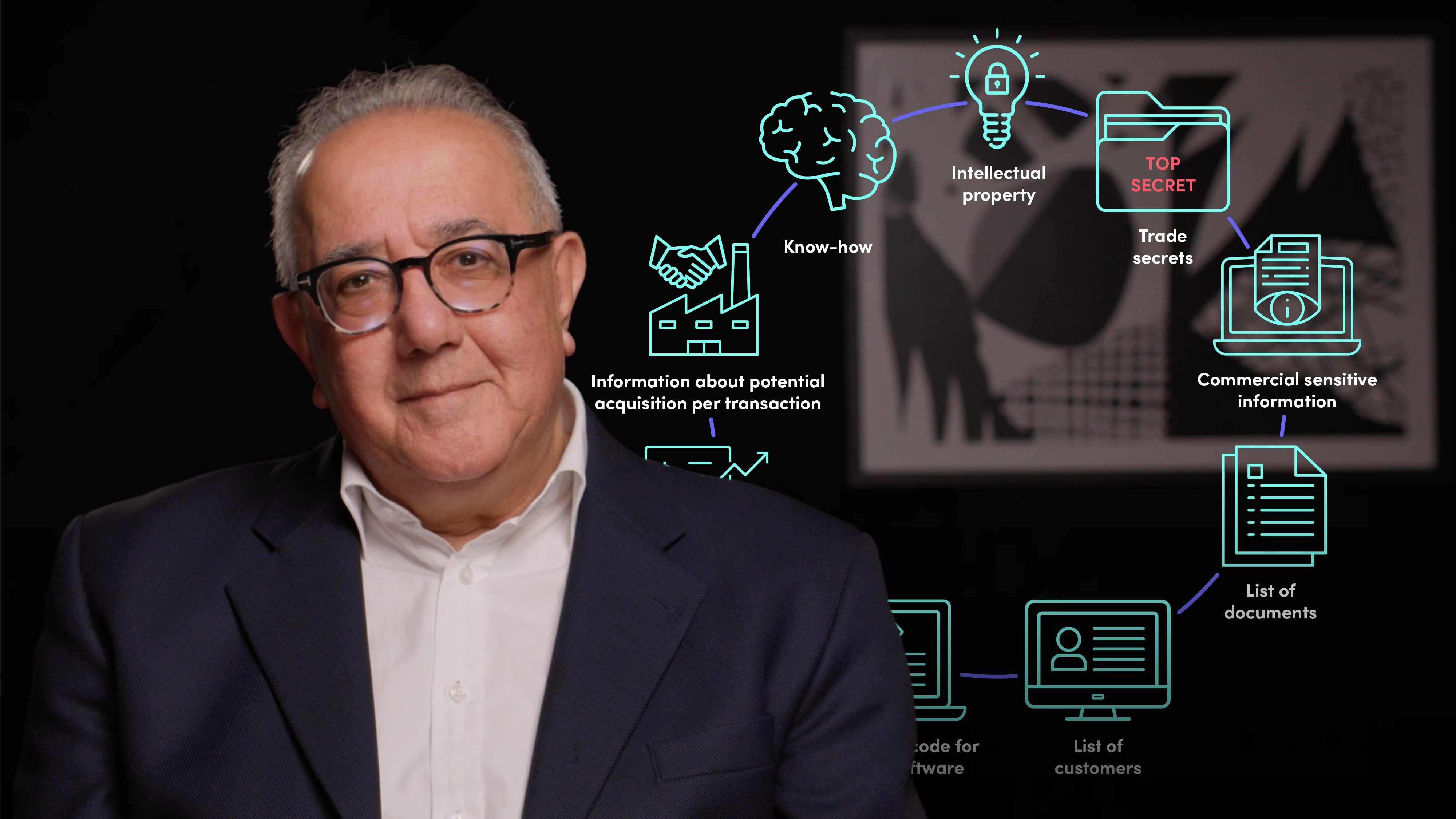
Confidentiality Agreements

Arun Singh
40 years - Corporate Lawyer
In this video, Arun looks at confidentiality agreements, also known as Non-Disclosure Agreements. He also explains how these can be established, how they are enforced, and the different obligations. He then outlines a list of points that a more complex confidentiality agreement should contain.
In this video, Arun looks at confidentiality agreements, also known as Non-Disclosure Agreements. He also explains how these can be established, how they are enforced, and the different obligations. He then outlines a list of points that a more complex confidentiality agreement should contain.

Confidentiality Agreements
8 mins 16 secs
Key learning objectives:
Outline the purpose of confidentiality agreements / non-disclosure agreements and what information they keep safe
Understand different obligations of confidence
Overview:
In order to prevent certain parties disclosing private information, you may enter into a confidentiality agreement, also known as a non-disclosure agreement (NDA). One should not disclose commercial information without having the other party sign an NDA. Obligations of confidence can be created through three means; an express obligation in a contract, an implied obligation in a contract or the relationship between the parties.
Why use confidentiality agreements?
Confidentiality agreements, also known as non-disclosure agreements (NDAs) is an agreement requiring one party to keep certain information disclosed and to use that information only for the particular purpose for which it is disclosed.
The information they protect can be technical, intellectual property, trade secrets, commercially sensitive information, lists of documents, list of customers, a secret source code for computer software, financial information, information about a potential acquisition or know-how. It is essential that an NDA is signed before disclosing any commercial information.
Once it is published, it is seen as entering the public domain and, as a result, loss and damage can be caused to one or other of the parties.
Secret information is protected regardless of whether there is an NDA in place or not. Secret information is protected by the common law of confidence and, under the law of equity, a party who receives confidential information cannot take unfair advantage of it.
To enforce a confidentiality agreement you would have to rely on the courts as there is no statute under English law that governs confidentiality agreements.
When can a confidentiality agreement come about and what are the obligations of confidence?
Obligations of confidence can be created by an express obligation in a contract, an implied obligation in a contract or the relationship between the parties.
An express obligation is if there is an actual term stating that the information provided is confidential.
Confidentiality agreements should include a number of points:
- Define what the confidential information is
- Set out whether confidential information should be marked “confidential” or not
- Outline who may have access to and use the information
- State how information is to be kept and how secure it needs to be
- Set out whether copies can be made
- Ensure the agreement is binding
- State which employees of the receiving company can use the information
- Outline what the information can be used for
Set out how long the agreement is for

Arun Singh
There are no available Videos from "Arun Singh"

